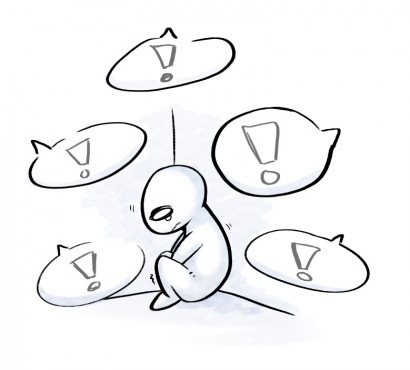The UVic student political landscape saw the entrance of its newest contender last week, with the advent of the UVic Students for Free Speech and Accountability (USFSA). Borne of the desire to hold the powers that be (ie. the UVSS) accountable — as well as the release of a problematic report by the Justice Centre for Constitutional Freedoms that gave UVic and the UVSS failing grades in their support of free speech — the page quickly became a hotbed of discussion. Some of it was fair and valid. And some of it was terrible.
The bulk of discussion so far has centred around free speech, or rather, how the UVSS “limits” it. In one case, this supposedly manifested when the Native Students Union (NSU) opposed a student conference on the grounds that planners did not adequately consult indigenous groups on campus. USFSA went so far as to say the NSU had veto power; this is disingenuous to the extreme, and ignores the fact that a marginalized group voiced entirely reasonable concerns with how the UVSS was behaving — exactly what the USFSA believes to be their own mission.
In another instance, the spirited discussion revolved around the idea of safe spaces, with some wondering whether such spaces do more to segregate folks rather than include them. With the UVic Pride Collective referendum fast approaching, some used it as an opportunity to call the group’s activities into question, with one person going so far as to claim a funding increase for minorities was discrimination. (It’s not.)
And in yet another instance, some openly questioned whether colonialism was a tangible phenomenon today. The list goes on, but most of the naysaying comes from — surprise, surprise — privileged individuals, repeating the same tired song and dance you hear every other time marginalized groups speak up about the injustices they face every. Damn. Day. And those same privileged folks will probably be mad that we said that. Tough.
Free speech can be summed up in a neat little analogy: you also have the freedom to wildly wave your arms about. However, the man sitting next to you on the bus has the right to safety (in this case, the right to not be punched in the face). Ergo, your right to wave your arms around is only valid if you’re not infringing upon other people’s right to safety.
Free speech is exactly the same. Yes, you have the right to voice your opinions. But this doesn’t mean you have the right to be a shitheel about it. The people around you would appreciate that you don’t, as they have the right to be safe from discrimination and violence.
In fact, the CBC recently announced they would be suspending comment sections on articles pertaining to indigenous affairs — citing a “disproportionate number of comments that cross the line and violate [their] guidelines” — and even the Martlet has taken steps in recent weeks to clean up its comments, with new policies put in place to limit inflammatory or harmful discussion. This is not censorship. This is not limiting your free speech. Rather, it’s doing our part to ensure that discussions remain safe and positive for everyone.
Because in the end, if you’re silencing those who need to be heard, then what kind of advocate for free speech are you?







